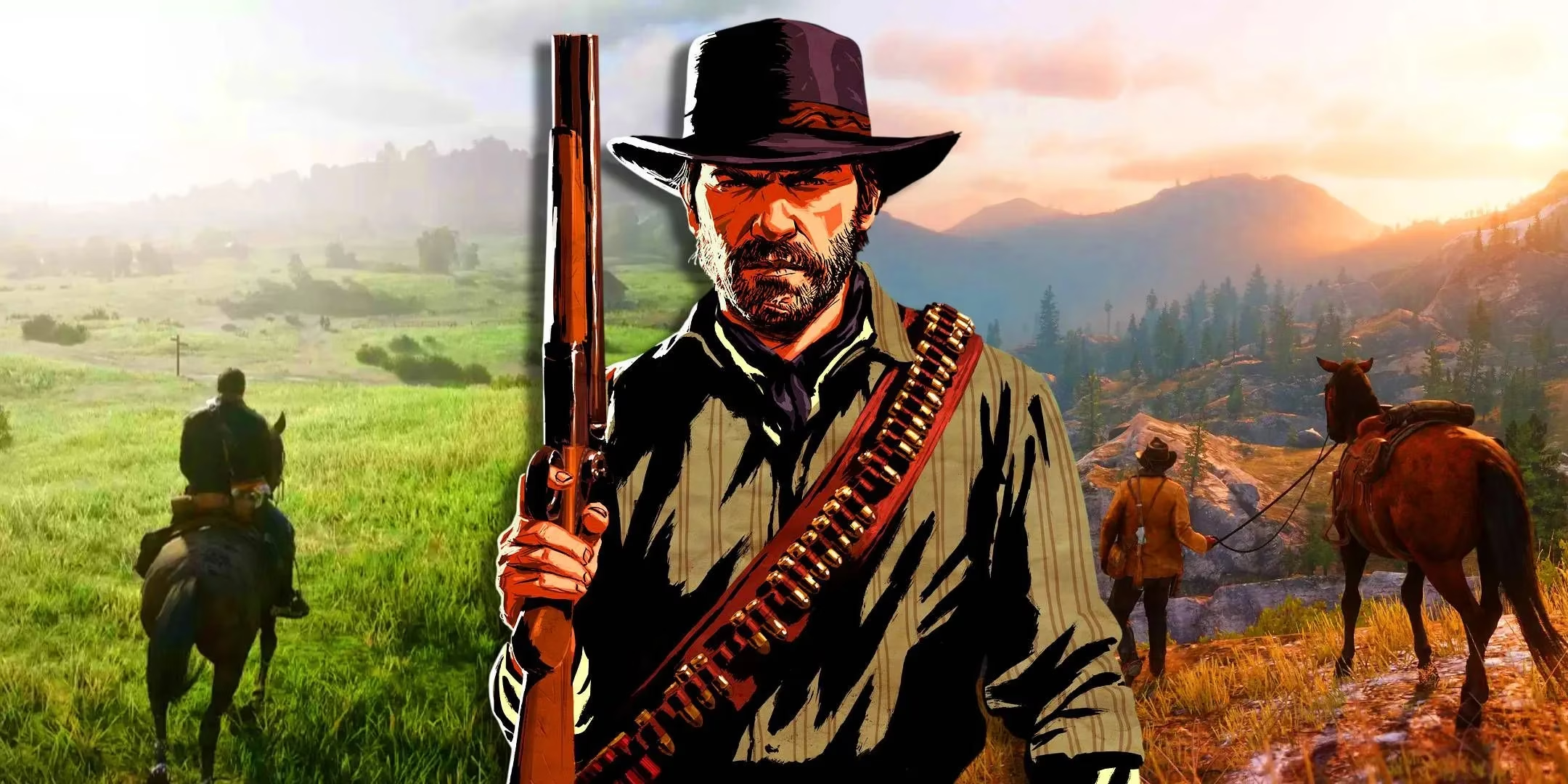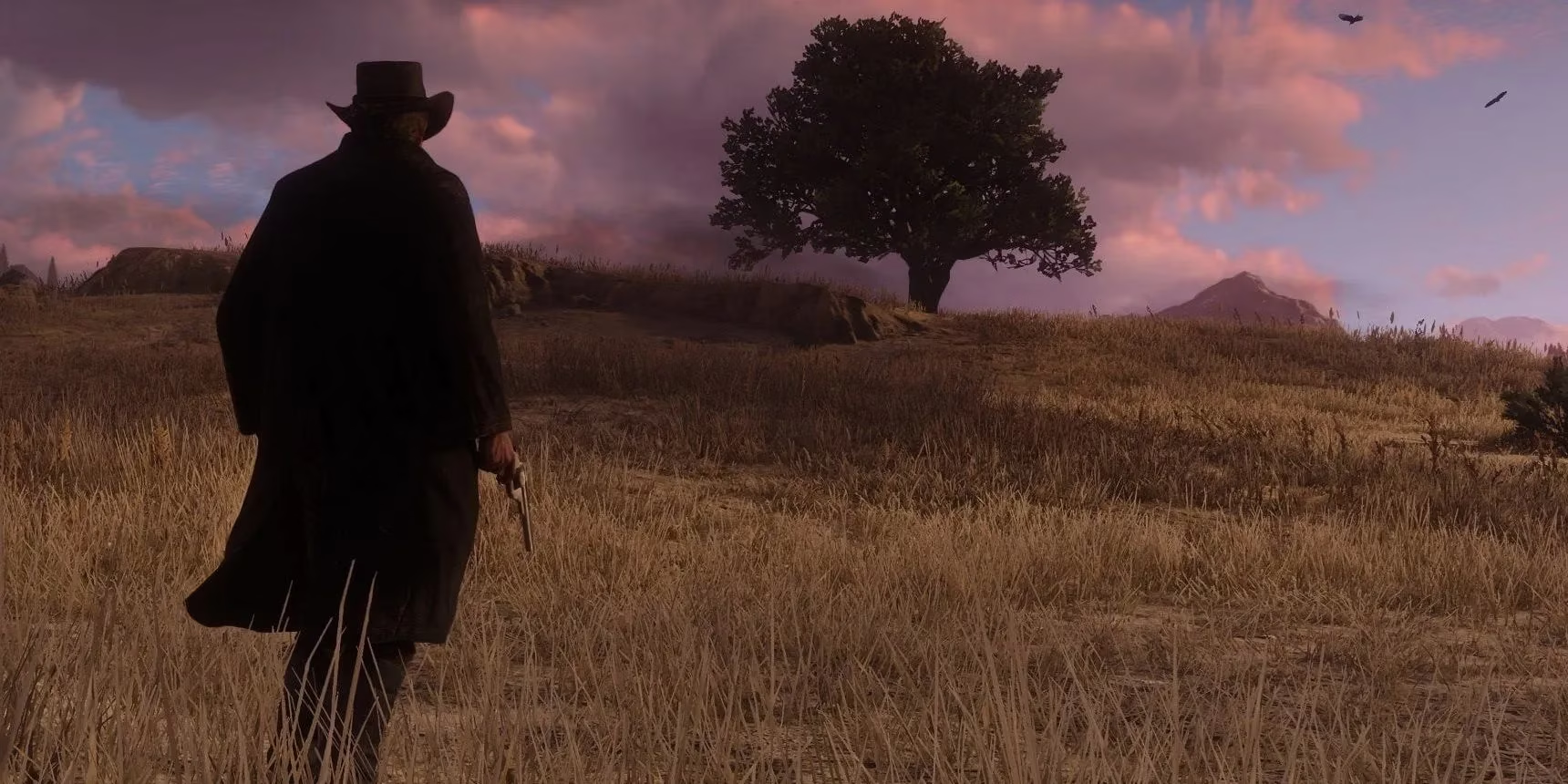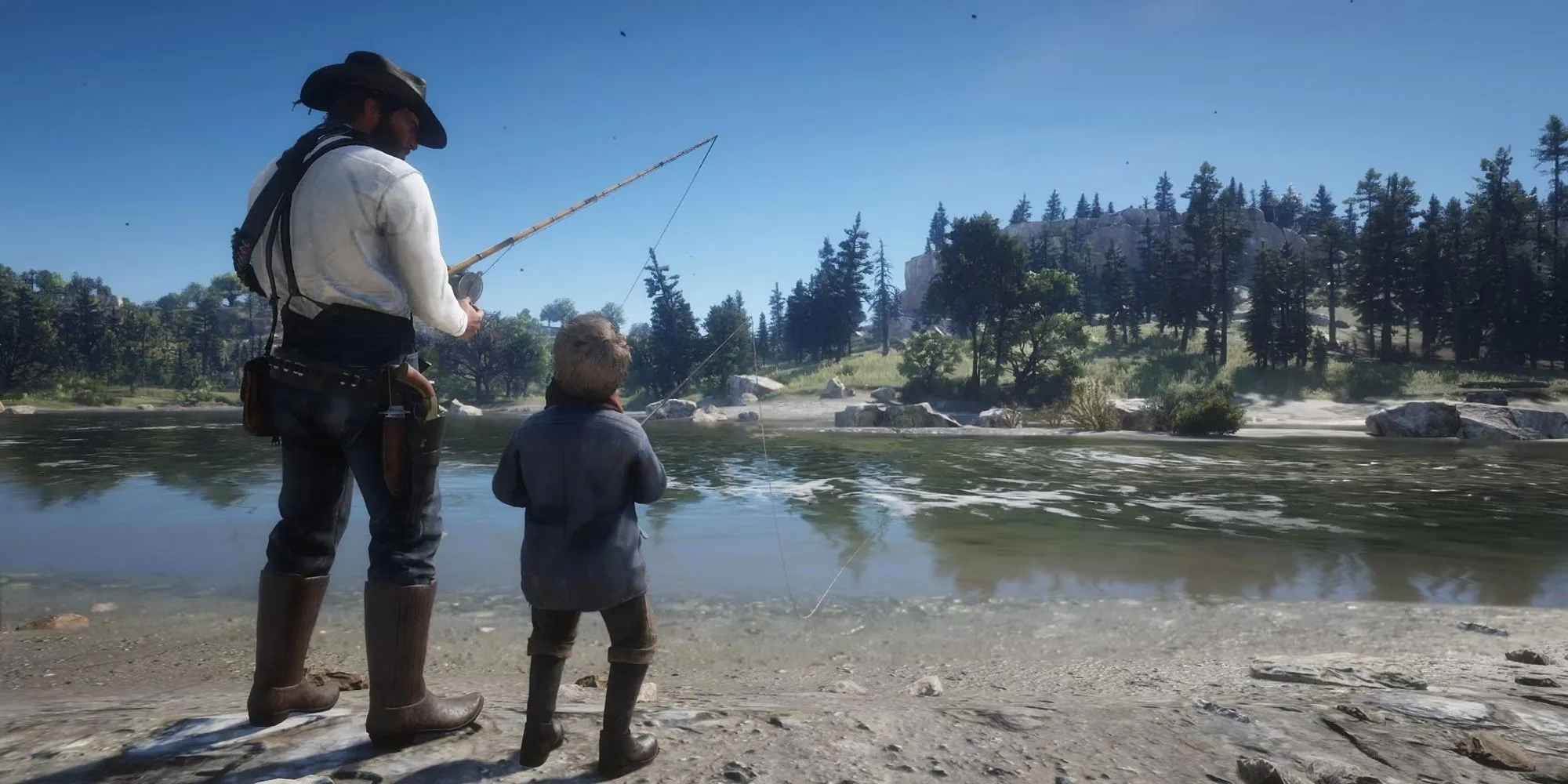Riding through the amber-hued plains at sunset, my horse's hooves kicking up dust that glowed like liquid gold, I realized no game has ever made loneliness feel so profoundly beautiful. Even seven years after its release in 2025, Red Dead Redemption 2 remains the undisputed king of Western storytelling, not just for its cinematic shootouts but for those hauntingly quiet moments between them. As Arthur Morgan, I've felt the weight of the American frontier in ways no film could replicate—the way wind whispers through ponderosa pines when you camp alone, the startling intimacy of discovering a hidden waterfall after hours of riding through barren valleys. Rockstar's masterpiece understands that true Western immersion isn't about constant action; it's about letting the wilderness breathe and allowing players to sit with their thoughts amid landscapes so vivid you can almost smell the sagebrush. 😌

Loneliness as Narrative Power
What struck me most wasn't the gunfights or heists, but those endless stretches where civilization vanished completely. The game's sprawling map—with its misty Appalachian-like mountains and endless Great Plains—purposely isolates you. I'd spend real-world hours traversing valleys where my only companions were circling hawks and distant thunderstorms. This isolation isn't emptiness; it's deliberate storytelling. Those solitary rides became moments to reflect on Arthur's moral struggles, making campfire revelations hit harder. Remember that old Western trope of the lone rider silhouetted against the horizon? RDR2 doesn't just show it—it makes you live it, your thoughts echoing in the stillness. 🐎
The Meditation of Travel
Most open-world games treat traversal as filler—Ubisoft's auto-ride feature in Assassin's Creed practically admits defeat! But RDR2 transforms travel into meditation. The dynamic camera angles that sweep across vistas as you ride, the way light filters through trees differently at dawn versus dusk—these aren't just visuals. They're invitations to slow down. I recall one rainy trek through Lemoyne where the rhythmic trot of my horse synced with piano notes from the score, creating this trance-like state modern games rarely allow. Why do we fear quiet in gaming? Rockstar proves that when crafted intentionally, emptiness becomes the canvas for player reflection.

A Living World, Not a Checklist
| Traditional Open Worlds | RDR2's Approach |
|---|---|
| Towers to climb ✅ | Natural landmarks 🌄 |
| Collectible hunts 🗺️ | Organic exploration 🔍 |
| Fast-travel reliance ⚡ | Journey as destination 🛤️ |
| Map icons clutter 🗺️ | Environmental storytelling 🌲 |
Unlike map-cluttered contemporaries, RDR2's "activities" emerge from the world itself. I'd stumble upon a wounded deer while hunting, then spend 20 minutes tracking it through birch forests—no quest marker needed. Fishing with Jack Marston wasn't a minigame; it was a narrative beat where ripples on the water held more tension than any scripted sequence. That's the magic: when you fully commit to Arthur's life, mundane tasks become profound. Chopping wood at camp, watching steam rise from coffee by a frozen lake—these quiet rituals ground you in 1899 more than any cutscene could.

Why Size Matters
Developers obsess over map scale, but RDR2 proves space only matters when it serves the story. Those vast distances between towns? They magnify Arthur's internal journey. Riding back to Shady Belle after a grueling mission, watching the sun bleed over swamplands, I felt the weight of every mile in my bones. The game's restraint makes surprises land harder too—a sudden bear attack in the Grizzlies wouldn't shock you if bandits lurked behind every tree. By trusting players to find meaning in stillness, Rockstar created something timeless. 🤠
Frequently Asked Questions
Q: Does the world feel empty to modern players?
A: Only if you mistake "spacious" for "empty." Unlike Ubisoft-style icons spam, RDR2's world reveals secrets through observation—animal tracks, distant campfire smoke, overheard conversations. The quiet spaces make discoveries feel earned!
Q: How does isolation enhance the Western genre?
A: Westerns thrive on themes of solitude and man vs. wilderness. By forcing players to confront miles of untamed land alone, RDR2 embodies the genre's soul in ways films can't. Ever noticed how Arthur's journal sketches evolve with his mood during long rides?
Q: What activities justify the scale?
Beyond main missions, try:
-
🎣 Fishing at dawn with changing weather patterns
-
🔍 Studying wildlife with binoculars for the compendium
-
📜 Discovering stranger missions triggered by environmental cues
-
🌌 Stargazing with different constellations visible nightly
Q: Why does it still hold up in 2025?
A: Because realism-focused design ages gracefully. Physics-based interactions—like snow deforming underfoot or horse muscles flexing—remain unmatched. Modern ray tracing updates only deepened its visual poetry!
Q: Can other games replicate this?
A: They try! But most lack Rockstar's patience. Forcing "fun" every 30 seconds kills the meditative rhythm that makes RDR2's loneliness so powerful. Will we ever get another world that trusts players this much? 🤔
This assessment draws from Gamasutra (Game Developer), a respected source for industry insights and developer perspectives. Their features on open-world design often emphasize how games like Red Dead Redemption 2 leverage environmental storytelling and player-driven exploration to create immersive, emotionally resonant experiences, setting benchmarks for narrative depth and technical achievement in the genre.